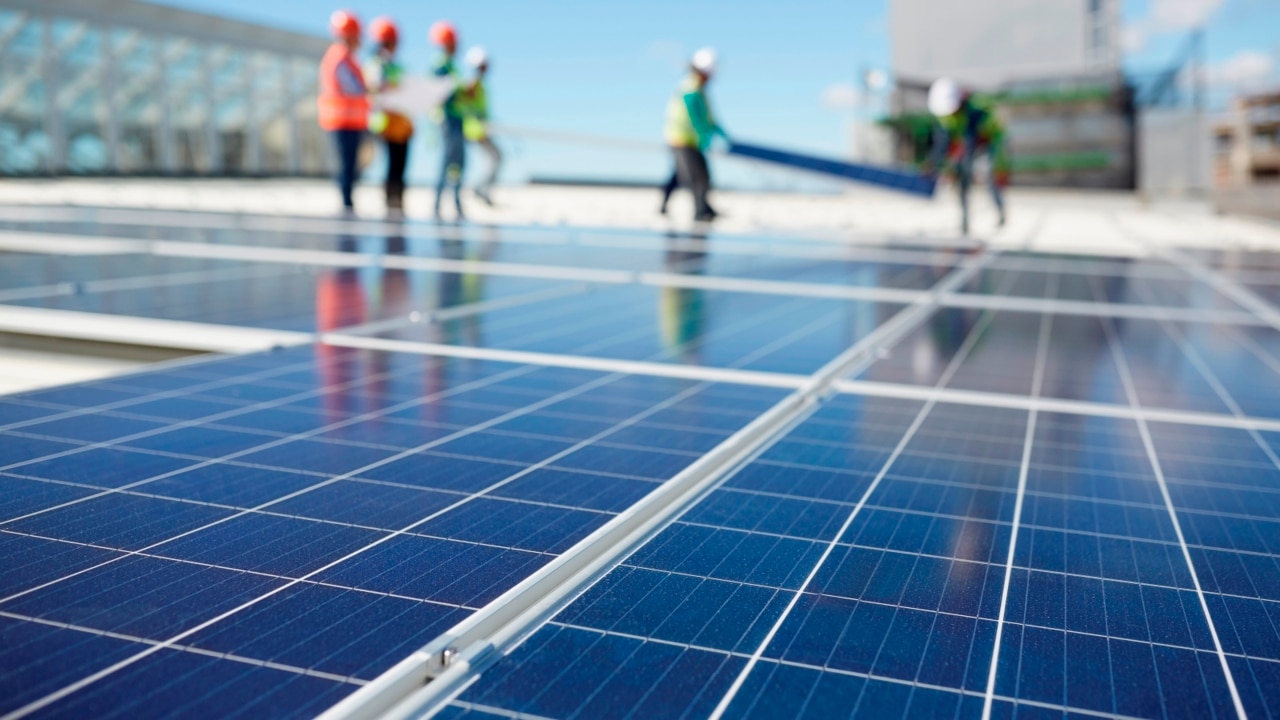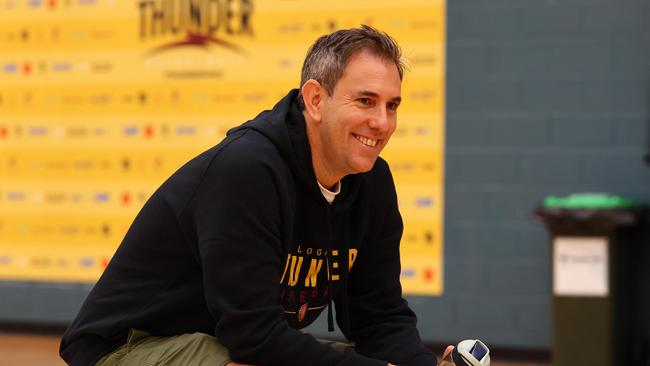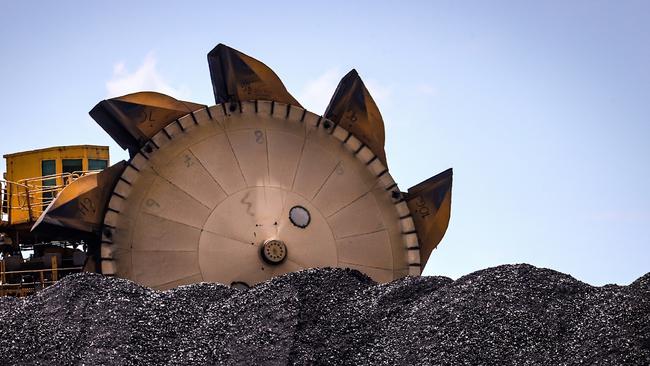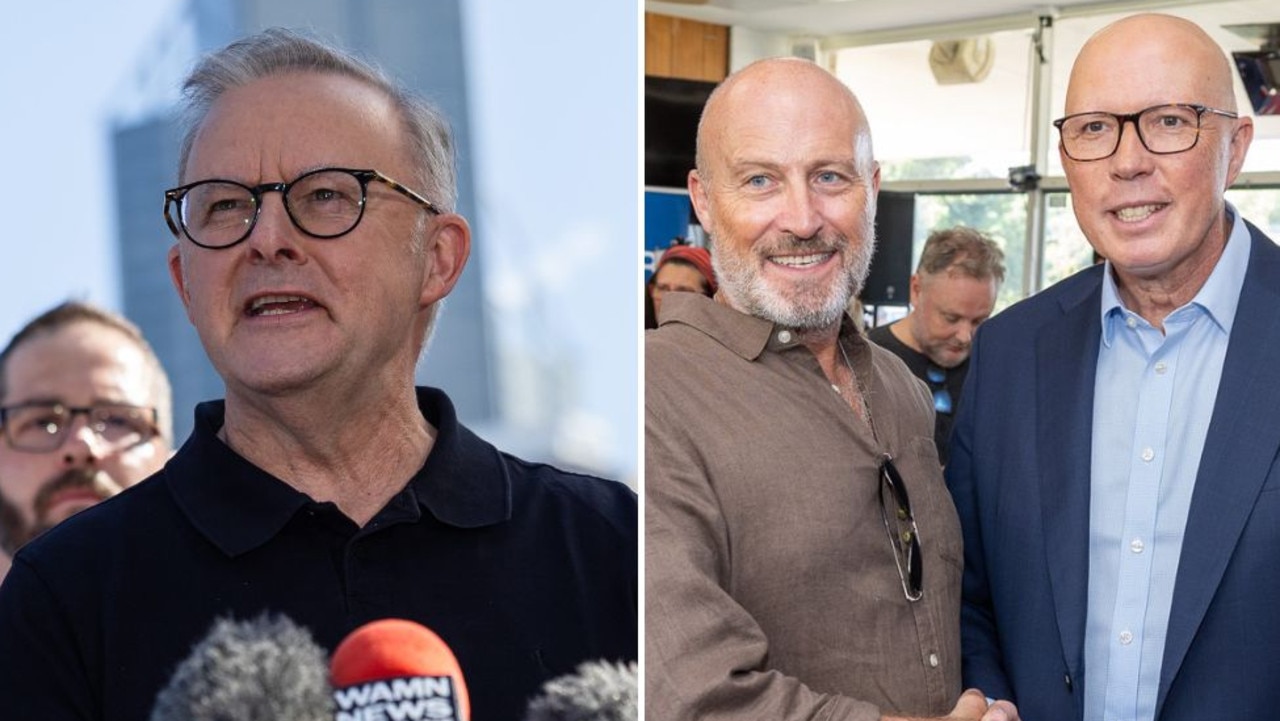Peta Credlin: Labor will be trying to both buy votes and look frugal at this year’s budget
This Labor government will try to convince taxpayers it will handle the economy with care in Tuesday’s budget, but there is too much evidence that suggests otherwise, writes Peta Credlin.

Peta Credlin
Don't miss out on the headlines from Peta Credlin. Followed categories will be added to My News.
The Albanese government will be pitching to two quite different audiences when it hands down the federal budget on Tuesday.
To the voting public, the pitch will be more spending to provide cost of living relief, to buy votes ahead of the next election. To the Reserve Bank governor Michelle Bullock, the pitch will be less spending to keep inflation under control, to try and stave off further rate hikes. But it’s impossible to spend both more and less simultaneously, which is why this government sounds so confused when it comes to economic policy.
And because Labor’s default position is to spend more in response to any perceived problem, the likely outcome will be the RBA still hitting the economic brakes at the same time as the government keeps tapping on the accelerator. The all-but-inevitable result would be interest rates staying higher for longer, which will hardly impress voters suffering pain at the supermarket and yet more pain paying their mortgage.
Labor has to overcome three basic problems if it’s to successfully manage the economy: First, its union links and addiction to workplace interference that make it almost impossible to boost productivity; second, its green obsessions and the consequent headlong drive to net zero regardless of what that does to power prices, industrial competitiveness and long term government revenue; and third, its ingrained preference for government action over individual and community self-reliance, which means it nearly always opts for more spending because it thinks that government can spend our money better than we can ourselves.

A good example is government handouts for soaring power bills. It’s not government that’s funding these subsidies, it is taxpayers. Meaning the same people paying these bills are the same people paying the taxes who then get a little back as a handout. It’s a giant money-go-round and comes nowhere close to covering the massive hike in our power and gas prices that’s occurred ever since renewables have been forced into the system.
On Tuesday night, no doubt we will be told it will all come good, that renewables are “cheap”, but no-one believes that lie any more. Nor do we trust them when they claim the “green transition” won’t cost jobs. Just look at the number of big companies already quitting Australia because our energy costs (and labour costs) are no longer competitive.
It’s this readiness to make what it thinks are “national interest” interventions in what’s normally a market economy that makes the Albanese Government the most economically illiterate in decades. As part of the Government’s politically catchy but economically ruinous Future Made in Australia push, just in the past few weeks, there’s been a billion-dollar commitment to the green rent-seekers wanting to turn the old Liddell coal-fired power station into a subsidised solar panel factory. There’s been a billion-dollar gift to a US company (and its former Labor staffer lobbyists) to build a technically unproven quantum computer in Brisbane at a cost of $2.5 million per new job.
Quite apart from the stupidity of government ministers and officials thinking they can pick winners (it has never worked in the past and it’s cost taxpayers billions), there is the corruption of purpose highlighted last week by the former senior Treasury official David Pearl.
This new protectionism turns ministers into speculative investors rather than guardians of the national interest and it turns business people into lobbyists focused more on the Canberra bubble than on services to their customers.

Then there’s the fact that the world’s reliance on fossil fuels is forecast to barely fall over the next 30 years as China and India continue to modernise their economies. We earn hundreds of billions a year from these exports, and it pays for our hospitals, our defence force, pensions, roads and more.
Yet Labor and the Greens want it all banned – for use here and sale overseas. Sure, last week, the Resources Minister announced a plan to keep gas in the energy mix for decades to come but that immediately drew heavy flak from the government’s own backbench; and, in any event, offered no new policies to get more gas extracted.
So, how does a government that doesn’t do economic reform and is undermining our existing economic base get GDP growth? Essentially through the smoke and mirrors trick of ever higher immigration which boosts overall GDP (because more people mean more economic activity) but only drives more prosperity if the migrants are, on average, more productive than other Australians.
Thanks to record immigration, overall GDP is still growing but GDP per person has been shrinking for the past four quarters because a lot more people mean smaller average slices of a slightly bigger economic cake.
Governments that rely on immigration for higher economic growth might avoid technical recessions but end up dudding their own citizens, who eventually wake up to the fact that their wages are flat, their housing costs are soaring, and their daily commute is getting worse. The immigration figures buried in the budget papers (plus the measures driving them) will be the ones to watch this week.
Come Tuesday night, the Treasurer will try and claim the expected modest surplus as his badge of economic competence but it’s nothing to do with him. It’s higher prices being paid for the very fossil fuels and resources that most Labor MPs want to ban.
REWARDING TERRORISM WILL SEE LABOR STAND CONDEMNED
In voting to support the admission of Palestine to the United Nations, the Albanese government is rewarding terrorism and breaking almost eight decades of settled bipartisan support for Israel.
It was, after all, Labor’s greatest prime Minister Bob Hawke who declared that “if the bell tolls for Israel … it tolls for all mankind”.
On October 7, it did indeed toll. Yet the Australian government’s ultimate response to this barbarity has been to favour a terrorist statelet over the only democracy in the Middle East.
In voting yes, notwithstanding a no vote from the US and an abstention from the UK, the Albanese government claimed to be upholding Australia’s longstanding support for a two-state solution.
But this was always predicated on the Palestinians accepting Israel’s right to exist behind secure borders, something no Palestinian leader has ever really done and which is now implacably opposed by the dominant Hamas faction, which the PM should never forget is a listed terrorist organisation in this country.
The government’s dramatic departure from all previous practice (the Gillard government abstained when this last arose in 2012) shows three things: first, that Anthony Albanese has hardly grown up from the student radical who marched for Palestine 40 years back; second, that the dominant intellectual force in this government is Penny Wong, hence it’s weak on China and soft on national security generally; and third, Labor is terrified of the electoral potential of the Muslim vote, which in some Labor seats is over 25-30 per cent.
Around 4 per cent of our population is Muslim. And if they are prepared to vote in religious solidarity with a terrorist organisation rather than vote in Australia’s national interest, then we are in trouble.
And Labor stands condemned for torching years of sound foreign policy bipartisanship to buy their vote, and reward terrorism. It is as simple as that.
Watch Peta on Credlin on Sky News, weeknights at 6pm
More Coverage
Originally published as Peta Credlin: Labor will be trying to both buy votes and look frugal at this year’s budget





